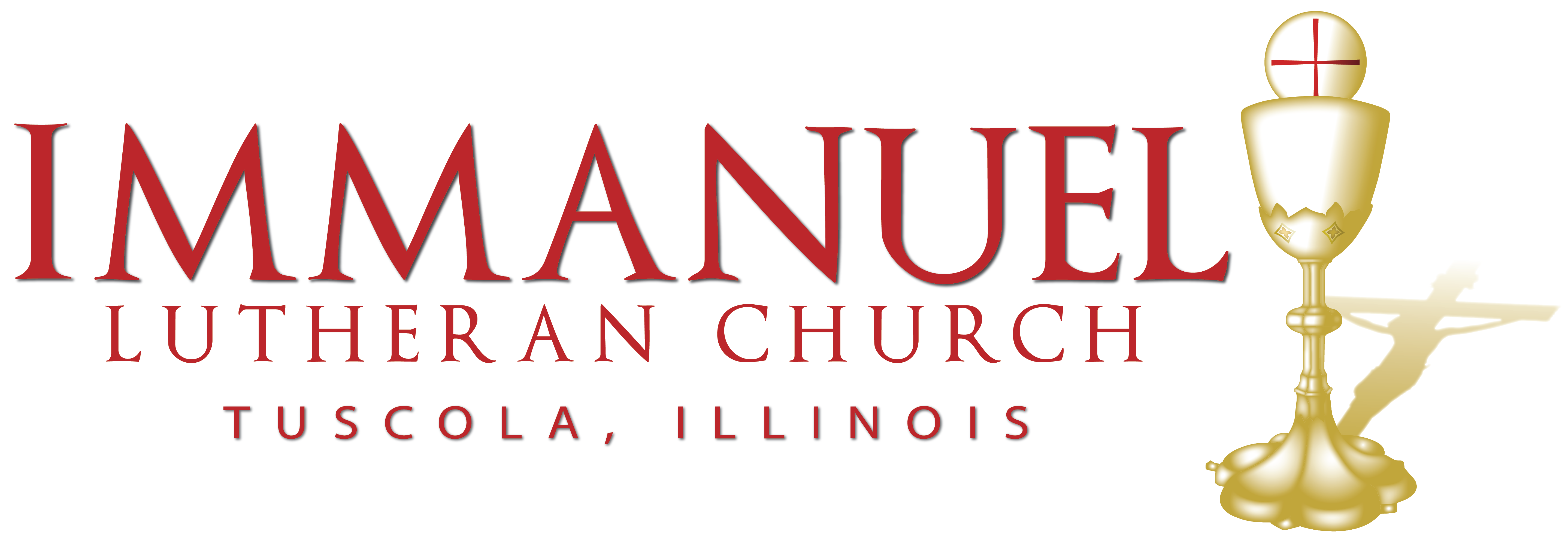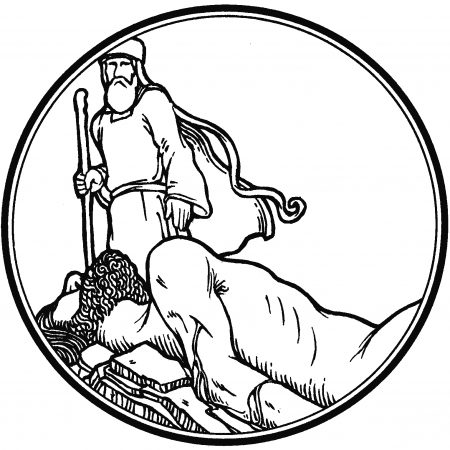The Thirteenth Sunday after Trinity
Luke 10:23–37
+ IN NOMINE IESU +
One of my professors in seminary was a short, middle-aged, Japanese man. He conducted his class in a Socratic style, that is, he would ask questions of the class, and we were encouraged to ask questions of him and each other. The point was that by asking questions, the right questions, we would learn more about the subject matter. At least once during the class, this professor’s standard reply was: “Tis wong question.” He got the name Professor Miagi because of this.
The point of him saying this was to alert us that only if you ask the right questions do you get the right answers. If your car mechanic working on your car, asks: “How do I fix this?” before he asks “What is wrong, or what is broken?” He’ll be led down many paths before he goes down the right path.
The questions we ask also reveal something about us. That is, they reveal what our assumptions are. For example, when a student who missed a class goes to his teacher and asks, “What important things did I miss,” demonstrates that not all the teacher teaches in class in important for him to learn.
These two things—asking the wrong questions and the assumptions behind those questions—are at play in our text today. And it’s helpful for us to take a look at these and then ask of ourselves what are the wrong questions that we ourselves ask, and what are the assumptions behind them.
The lawyer asks first: What must I do to inherit eternal life? inherently flawed, because what can any of us do to inherit anything? Tis wong question. Like asking, what must I do to inherit the crown of England? Only those who are members of the royal family inherit the crown of
And the assumptions that this question reveal is that the lawyer thinks that eternal life is something to be earned. That loving God with all your heart, soul, strength, and mind, and loving your neighbor as yourself, is within a person’s grasp, is within man’s ability. He thinks that it is possible to keep God’s law perfectly.
We don’t earn eternal life. We inherit it. We inherit it because we are God’s children. Made so by holy baptism, adopted into his family by grace through faith in Christ’s atoning sacrifice on the cross. He has accomplished it for us. And he gives it to us as an inheritance, imperishable and undefiled, waiting for us in heaven. He saves us by His work, and we are recipients of that work through Word and sacrament. He takes away sin by his death and resurrection and gives it to us through the proclamation of the Word and giving out of the sacraments.
And this brings us to the lawyer’s second question: And who is my neighbor? We know by Jesus’ response that “Tis wong question.” It assumes that some people are our neighbor while others aren’t. In other words, that we are to love some and not others. Jesus flips this around with his parable, and then asks not “Who was the man in the ditch’s neighbor, but Who was a neighbor to the man in the ditch?’ Who loved the man in the ditch as he loves himself? The result is that we are to be neighbors to everyone. We are to love all who come across our path, as we love ourselves.
Why are we to love all? Because we are to be like God. As God’s children, we represent God as bearers of his name, in all that we do? Remember who you are, my father used to say to me as I left to go out with friends. It meant something that I was a representative of my family and of the family of God. What I did or failed to do was a reflection on that name that I bear, both in blood and baptism.
So what about the questions that we ask?
Do I have to go to church? Tis wong question. The assumption is that there isn’t anything at church that you can’t get elsewhere. The better question is: why would you want to miss it? Christ himself promises to be present with us at church. And not in some abstract way, but in a physical, bodily presence, in his risen and living body and blood, to take way our sin and to give us eternal life and everlasting salvation.
Do I have to give to church? Tis wong question. The assumption is that we can use our funds for better things. The better question is: why would you not want God to use what he’s given you to ensure that you continue to get the spiritual blessings he provides through it? For what better thing could we use the money God provides than to ensure that His gifts of Word and Sacrament continue in our midst? Is there anything more important than to receive the forgiveness of sins, eternal life, and salvation?
Do I have to memorize the catechism? Tis wrong question. The assumption is that we’ll always have access to our Bibles, to our catechisms, so we can find the answer well enough. The better questions is: why would you keep yourself from internalizing these eternal truths? Why would you keep yourself from carrying these truths around with you everywhere you go? Why would you not want the answers to simple questions like What is baptism and how can water do such great things? Why would you not want have internalized answers to questions like Who is truly worthy and well prepared to receive the body and blood of Jesus in the holy communion?
Did God really say? Tis wrong question. The assumption is that what God said is not what God means. It may be what He said to them back then, but He must mean something different now. In essence, it places us over the Scriptures instead of those who receive it humbly. In essence, it makes us gods, the ones who decide what is true and what is false, instead of letting God be God and His Word reigning over us. The better question is: What did God say? What are His commands. What has He demanded. What has He promised us?
You get the point. All these questions show us our assumptions about who God is and what He has said, what He has promised. So here’s what I want you to do. The next time a question pops into your head, ask yourself, what am I assuming by asking this question? And is that assumption biblical or not? Would the Scriptures say back to you: Tis wong question? So, confess your sin. Receive the absolution God declares and gives. And live your life according to his word. Love God above all things. And be a neighbor to all around you. Amen.



0 Comments